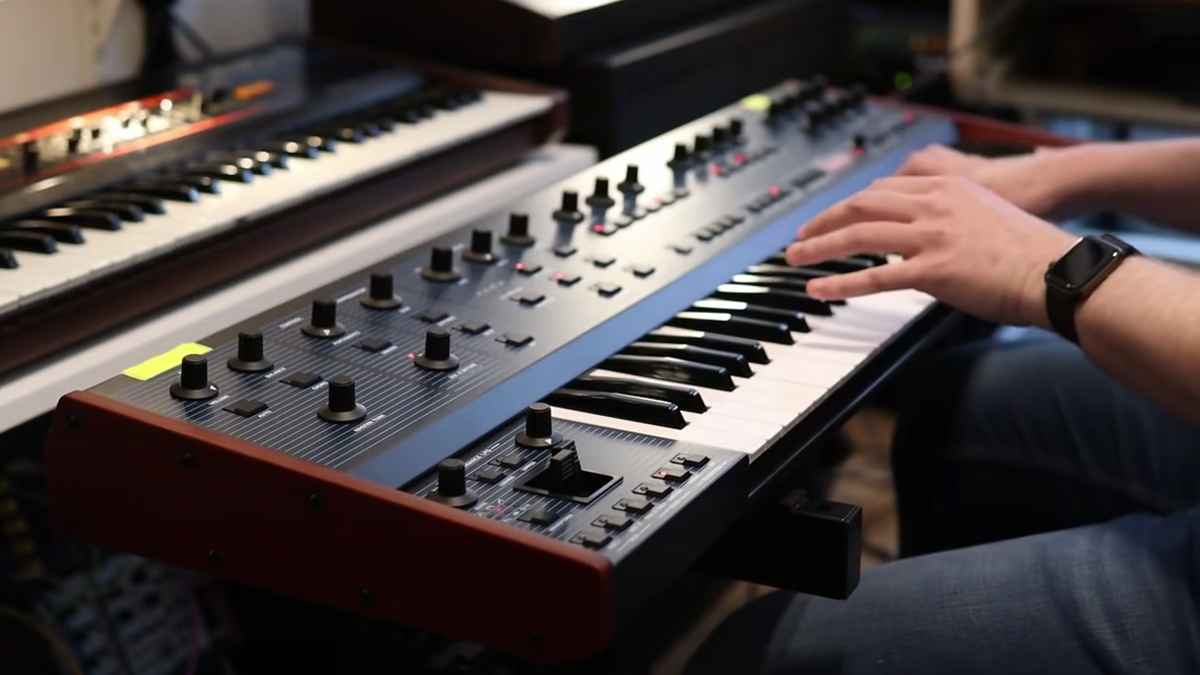
In the latest in a series of public statements addressing the development of the UB-Xa synth, Behringer has reaffirmed its position that it "shared its plan" for the synthesizer with Tom Oberheim prior to release and "received consent" to use the UB-Xa trademark.
Behringer shared a statement on Facebook on May 24 responding to Tom Oberheim's earlier claim that there was "no collaboration" between himself and Behringer and "no discussion of their plans for synths or anything else".
Oberheim's statement was made in response to an original post, shared on May 18, in which Behringer stated that it "discussed the UB-Xa with Tom Oberheim and got his consent" in developing the instrument.
"When questioned about the designer of the original synthesizer, we clarified in a social media post that we have the pioneer’s consent, affirming our right to market our synthesizer and use the UB-Xa name," reads Behringer's latest post.
"The pioneer whose name we’re unable to mention based on a three year old agreement, states: '…have no objection to Music Tribe’s use or registration of the mark UB-XA anywhere in the world…'.
"We clearly shared the plan for the UB-Xa synthesizer and received consent to use the trademark. We have utmost respect for the pioneer and it is unfortunate that this situation has escalated. We wish him the very best and much success."
"We have utmost respect for the pioneer and it is unfortunate that this situation has escalated. We wish him the very best and much success"
Launched late last year, Behringer's UB-Xa is an analogue polysynth that takes inspiration from the classic Oberheim OB-Xa, recreating its factory patches and emulating its oscillators and filters while adding a number of modern features that includes aftertouch and increased polyphony.
"We are immensely proud of our innovative UB-Xa and its success," reads Behringer's latest post. "This synthesizer is clearly not a clone; in fact it is the world’s first and only 16-voice analog and bi-timbral synthesizer with a poly aftertouch keyboard and 8-mode atrophy settings, all priced at USD 1,199, which is a fraction of the cost of competing products."
Earlier this month at the Superbooth trade show, Oberheim unveiled a new synth, the TEO-5. Priced at $1499, the five-voice instrument is the most affordable synthesizer the brand has ever released.
The history of the Oberheim trademark is a complex one. In 1985, following bankruptcy, the company sold off its trademarks to various parties; Gibson acquired the rights to the Oberheim name in the United States and several other countries and began to manufacture Oberheim-branded products.
After Tom Oberheim returned to the synthesizer market in 2009 with the Tom Oberheim SEM, Gibson returned possession of the Oberheim brand to its original owner in a gesture of good will. However, Behringer remained in possession of the Oberheim trademark in several countries outside of the United States.
Back in 2021, Behringer's parent company Music Tribe attempted to trademark the name 'Behringer Oberheim' in the US, a bid that was ultimately blocked by the US Patent Office. Following this decision, Behringer returned the Oberheim trademark to Tom Oberheim, giving him the worldwide rights to his name for the first time since 1985.







